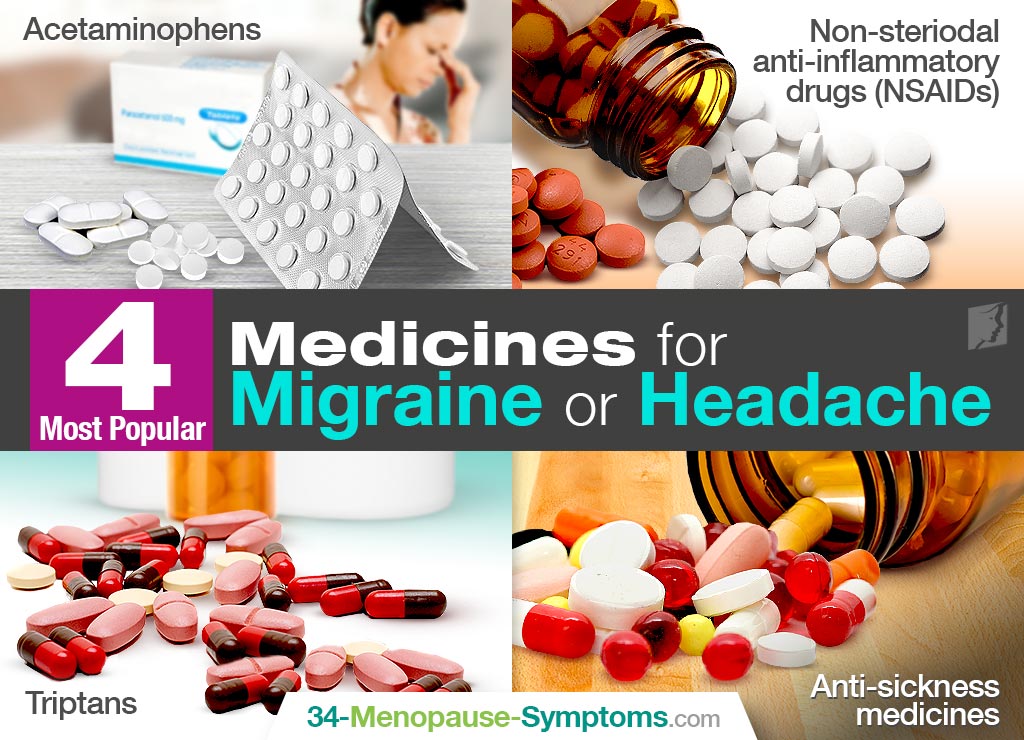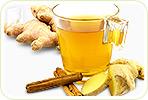Migraines and headaches are unfortunately a considerably common complaint, particularly among menopausal women. While sometimes it is possible for these to pass without treatment, oftentimes headache or migraine medicine might be deemed necessary. The wide range of available medication for headaches and migraines can cause confusion regarding which is the most suitable for your needs. For this reason, it is advisable to somewhat familiarize yourself with the different options and how they work.
Acetaminophens
Also known as paracetamol, these are the most common analgesic medications, used for relieving fever and killing moderate pain of any sort. There are more than 40 branded types available to buy over-the-counter, and its popularity attests to its effectiveness. It might seem bizarre then, that scientists are still not entirely sure how the drug works inside the body.
Research has revealed it is safe to consume within the guidelines; however, exceeded acetaminophens can cause severe liver damage. Approximately 150 Americans die from an overdose of this medication every year.
Non-steroidal Anti-inflammatory Drugs (NSAIDs)
These drugs can also be effective migraine medication. They work by reducing inflammation in the affected area by limiting the production of prostaglandins in the body. When the body encounters pain its natural reaction is to become inflamed as a form of protection - but sometimes this can be so excessive that it is detrimental to the body and causes pain. Reducing swelling then will reduce pain. Over-the-counter NSAIDs are widely available, some of the most popular forms being:
- Aspirin
- Naproxen
- Ibuprofen
These drugs can lead to gastrointestinal distress, even causing bleeding and the development of stomach ulcers in some cases. This is unlikely to occur with moderate usage; however.
Triptans
This is a lesser known headache medicine, which was once only available on prescription, but can now be bought more easily. The chemicals within these drugs mimic the activity of serotonin in the body, and can instigate the narrowing of blood vessels in the brain - which is thought to be one of the reasons behind migraines and headaches. It is thought that triptans might also work to stabilize the activity of chemicals in the brain which can influence pain.
Side effects of this medication might be:
- Tingling sensation
- Tightness
- Flushing
Due to the implications concerning blood vessels this medication should not be taken by sufferers of heart or blood pressure problems.
Anti-sickness Medicines
Also referred to as anti-emetics, these can make worthwhile medicine for headaches and migraines because they can reduce the associated symptom of nausea. Many people consume them in conjunction with analgesics as they do not necessarily work to reduce the pain in the head. There are some combination drugs available, which possess both anti-sickness and pain-killing action. Common side effects of anti-emetics can be drowsiness and diarrhea.
Many women will no doubt find that some popular headache and migraine medication works better than others, for them as an individual. With this in mind, it is important to try various types, keeping in mind how they work and how they might affect your body - both positively and negatively.
Sources
- The Migraine Trust. (n.d). Acute medicines. Retrieved June 14, 2017, from https://www.migrainetrust.org/living-with-migraine/treatments/medication/
- Harvard Health Publications. (2015). 11 things you should know about common pain relievers. Retrieved June 14, 2017, from http://www.health.harvard.edu/pain/12-things-you-should-know-about-pain-relievers
- National Health Service UK. (2016). Migraine - Treatment. Retrieved June 14, 2017, from http://www.nhs.uk/CONDITIONS/MIGRAINE/Pages/Treatment.aspx
- American Chemical Society. (2014). How Does Acetaminophen Work? Researchers Still Aren't Sure. Retrieved June 14, 2017, from http://cen.acs.org/articles/92/i29/Does-Acetaminophen-Work-Researchers-Still.html
- Cleveland Clinic.(n.d). Non-Steroidal Anti-Inflammatory Medicines (NSAIDs). Retrieved June 14, 2017, from https://my.clevelandclinic.org/health/articles/non-steroidal-anti-inflammatory-medicines-nsaids
- Patient. (2014). Triptans. Retrieved June 14, 2017, from https://patient.info/health/triptans




